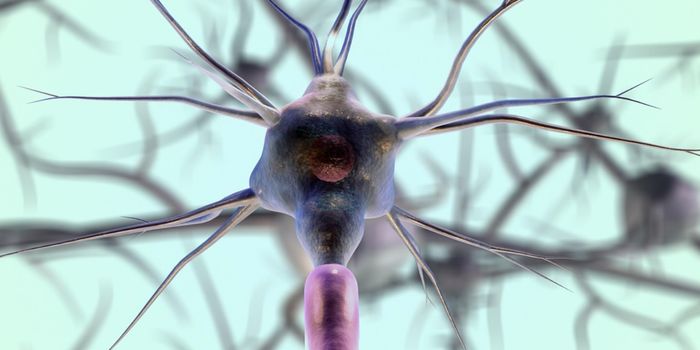Does Nose-Picking Really Increase Alzheimer's Risk?
A bacterium that travels via the olfactory nerve from the nose to the brain may lead to Alzheimer's disease (AD)- like pathology in mice. They say, however, that further research is needed to see whether and how these findings might apply to humans. The corresponding study was published in Scientific Reports.
Chlamydia pneumoniae is a respiratory tract pathogen that causes 5-20% of community-acquired pneumonia cases. While it primarily infects pulmonary and nasal mucosa, recent studies have noted the pathogen may also be linked to other conditions, including late-onset dementia. Some research found, for example, that 90% of post-mortem late-onset AD brains contained the pathogen compared to just 5% of age-matched controls.
However, how C. pneumoniae reaches the central nervous system (CNS) remains unknown. In the present study, the researchers sought to see whether the pathogen could reach the CNS in mice via the olfactory and trigeminal nerves- nerves that extend between the nasal cavity and the brain. To do so, they intranasally administered either the bacterium or a control substance to mice that were euthanized at days 1, 3, 7, and 28 post-administration for post-mortem analysis.
In the end, the researchers found that C. pneumoniae can infect the olfactory and trigeminal nerves, the olfactory bulb- a mass of tissue involved in the sense of smell- and the brain within 72 hours of administration. They further found that the bacterium dysregulated key pathways in AD pathogenesis 7- 28 days post-administration and that it was linked to amyloid beta accumulations- a key marker of AD.
The researchers also noted that injury to the nasal epithelium- the membranous tissue inside the nasal cavity- led to increased bacterial load in the peripheral nerves and olfactory bulb. However, they noted it did not increase bacterial load in the rest of the brain.
The researchers concluded that the nerves extending from the nasal cavity to the brain may constitute invasion paths through which C. pneumoniae can rapidly access the CNS and trigger genetic and molecular changes that might contribute to the onset of AD.
While a press release for the study suggested that these findings may mean that nose-picking could increase AD risk, Professor James St John, one of the co-authors on the study, told New Atlas that gentle nose-picking is unlikely to increase AD risk, although 'picking until it bleeds' may be more problematic.
Other experts, such as Bryce Vissel, a neuroscientist from the University of New South Wales, also told New Atlas that while the study's core findings are interesting, the idea that bacterial infections could play a role in dementia is still 'incredibly speculative'.
Nikki-Anne Wilson, a postdoctoral fellow at Neuroscience Research Australia, added: "The suggestion that a disruption to nasal epithelium may increase the likelihood of such an infection is novel. [...] However, this animal study is far from causal evidence that nose-picking will give you Alzheimer's disease. We know there are many contributing factors to developing Alzheimer's occurring across the lifespan, and it is extremely unlikely to be caused by a stray finger up one's nose."
Sources: Neuroscience News, New Atlas, Scientific Reports









